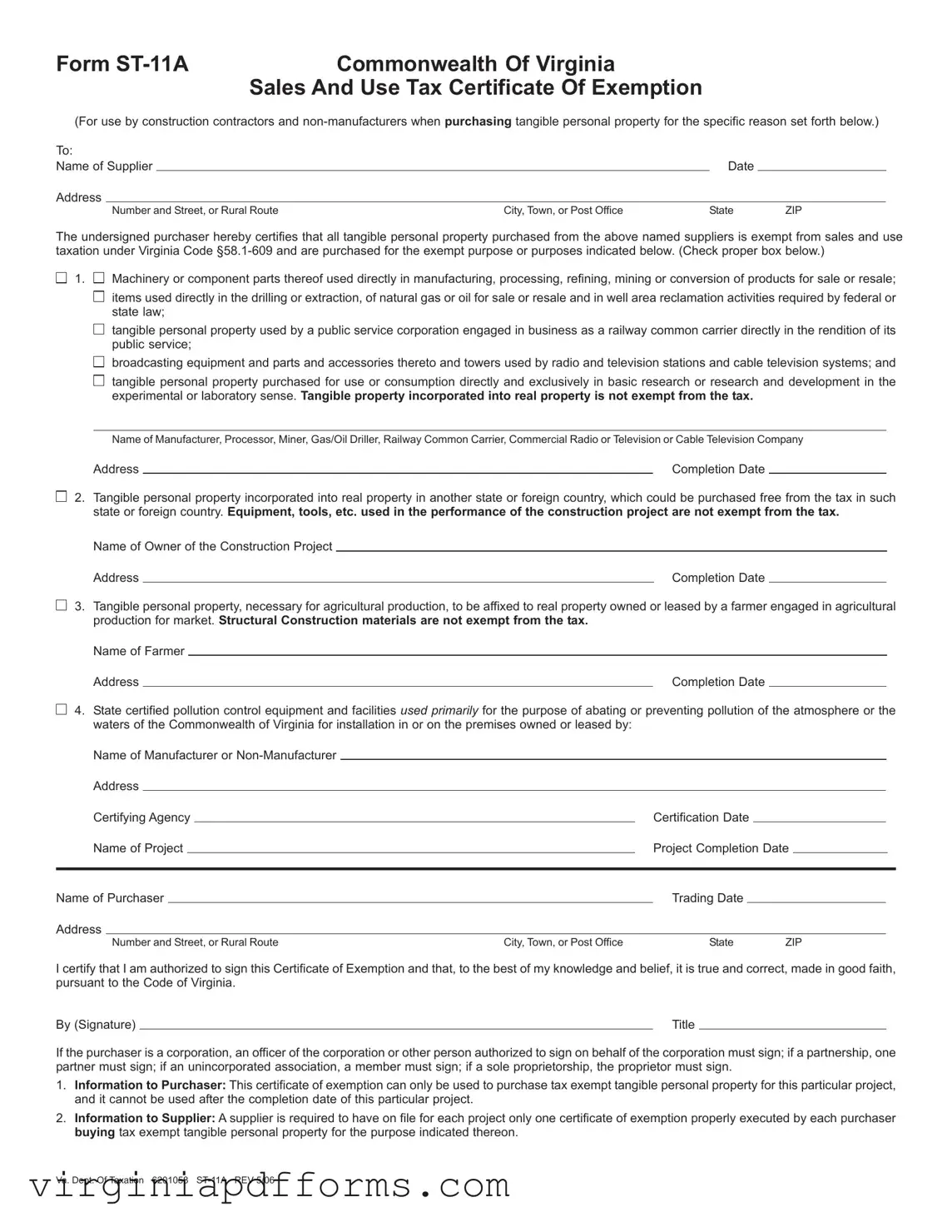Fill in a Valid Virginia St 11A Template
The Virginia St 11A form is a Sales and Use Tax Certificate of Exemption designed for construction contractors and non-manufacturers. This form allows purchasers to buy tangible personal property without incurring sales and use tax when the items are intended for specific exempt purposes. It is essential for ensuring compliance with Virginia tax regulations while facilitating necessary purchases for construction projects.
Access My Document Now

Fill in a Valid Virginia St 11A Template
Access My Document Now

Access My Document Now
or
Free Virginia St 11A File
Need this form wrapped up fast?
Finish Virginia St 11A online — edit, save, download without effort.